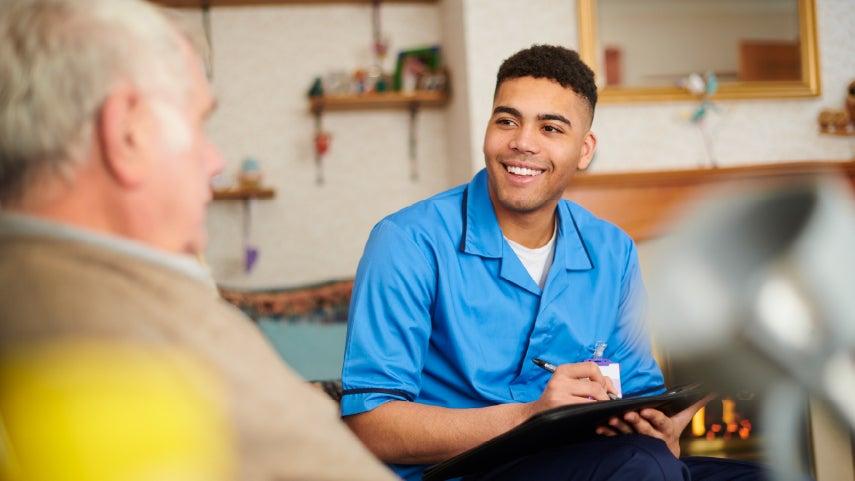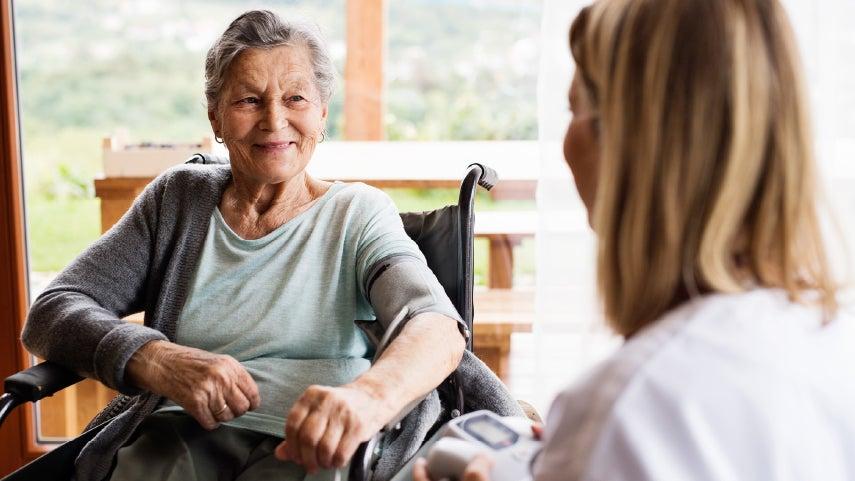
Having your own interests and passions is always important—and is even more crucial for caregivers. Having interests of your own helps you to maintain your own identity, rather than getting lost in the role of being a caregiver. However, finding good hobbies for caregivers can seem difficult at times.
I remember this one well myself. When I cared for my disabled partner, it seemed like I was permanently short on time and energy. And, when I did have anything extra, that it should go to him.
In practice though, having my own interests gave me more energy to support him. If I hadn’t taken that approach, my caregiving journey would have been so much more difficult—if not outright impossible.
How to choose the best hobbies
Before we dive into the list of hobbies for caregivers, consider how certain hobbies can meet different needs.
- Engaging hobbies. These tend to take up a decent amount of mental and/or physical energy, but often provide a lot in return. They’re powerful for pulling you out of the current situation and giving you somewhere else to put your attention. In doing so, they’re a good reminder there is more to your life than caregiving.
- Distracting hobbies. While these hobbies don’t necessarily require a lot of energy, they can pull you out of your present situation for a time. Your challenges don’t go away, of course, but having time away from them often helps you to see things more clearly and resets your emotional energy.
- Relaxing hobbies typically ask much less of you. Some, like gardening or yoga, involve simple physical movements, while others might involve little movement at all. Such hobbies give your body and mind a chance to rest and regroup.
- Purposeful hobbies. These hobbies are more than just a way to spend time. They also have some greater purpose, like crafting to earn money or as gifts for other people.
You’re likely to need some hobbies in each category, as sometimes you’ll just need to rest, while other times you’ll need to be engaged instead.
Relaxing hobbies for caregivers
- Knitting and crocheting are both relaxing hobbies, ones that allow you to slow down and catch your breath. You end up with a portable project, too—one that you can easily take from room to room. You might even take your knitting or crochet with you when you go out. What could be better when you’re waiting for your family member to see the doctor?
- Gardening: There’s something therapeutic about having your hands in the soil. Gardening is well-known as a way to decrease stress, improve your mental health, and even help with your physical health.
It’s another activity that can be as simple or as complex as you want it to be. If you don’t have much time, why not try working with a few potted plants or even air plants around the home? - Baking is the go-to relaxing activity for many people. It seems to have the perfect combination of features, as you have to put some thought and effort in (but not too much), you’re working with your hands, you’re creating something, and there are many delicious smells.
Plus, if you’re baking sweet treats, you also get a reward at the end. If you’re worried about eating too many treats, you could always give your baking away as gifts. Baking can easily turn into a family activity, too. - You don’t need an amazing camera to turn photography as a hobby. Even your cellphone camera will do the job perfectly. As strange as it might sound, I love walking in nature with my phone, taking photos as I go. Somehow doing so enhances my experience, and there’s always something relaxing about being outdoors.
- Yoga is naturally relaxing. More than that, it gives you the chance to connect with your body and mind, to come into focus. The same is true for related hobbies, like tai chi and meditation.
- Jigsaw puzzles is also another hobby that is easily shared, so you could work on a puzzle on your own, with the senior, or even with the whole family.
Distracting hobbies for caregivers
- Video games: There’s a strong stigma around video games. Honestly, though, they can be amazing. What else can take you out of your world so completely for a little while? Sure, you can watch a movie, but with a video game, you’re actually participating rather than just watching.
- Watching TV shows: Calling TV shows a hobby might sound like a stretch, but honestly, they can be. Like games, TV shows can pull you out of your situation. Movies work too, but TV shows are sometimes more powerful, as you get to connect with a group of characters over a drawn-out period.
- Sports and exercise classes: If you want to use your whole body rather than just your mind, then sports and exercise classes are both ways to do this. There are plenty of obvious options here, so we won’t describe them any more. What if you’re stuck at home as a caregiver? Online exercises classes are an obvious alternative.
Engaging hobbies for caregivers
- Reading can be relaxing, engaging, or both, depending on who you are and what you’re reading. Often though, reading can be an amazing way to get away from your current situation and immerse yourself in a completely different world. Doing so can give you a much needed escape.
- Writing, in all forms, is a fantastic hobby. You need barely any tools, just pen and paper (or perhaps a laptop if you prefer the digital approach). You can also be as creative as you like. Some people choose to journal instead or take a non-fiction approach. Writing on blogs, either your own blog or as a guest writer, can be a good approach too, giving you the chance to share your stories and experiences with others.
- Singing, dancing and making music: There’s something incredibly uplifting about music that makes it easier to shift into a better state. Plus, you can choose the type of music and the activity based on what you need. For example, you might choose slow songs when you want to calm down and relax, or upbeat music when you want to be energized.
- Arts and crafts: There are countless hobbies in the arts and crafts category. The general theme is always the same—you’re making something creative with your hands. Sometimes you might be following a set of instructions, while other times you’re going it entirely on your own.
Arts and crafts are fantastic for caregivers, as they’re enjoyable and give you the chance to make something. There is one catch though, many such hobbies quickly get expensive. For example, if you’re making jewelry, you’ll need to buy materials regularly. - Puzzles (like sudoku): While jigsaw puzzles are generally relaxing, other types of puzzles tend to engage your brain instead. Sudoku is a classic example, as you need to think about what numbers go where. There are also plenty of other options, including word puzzles, brain teasers, logic problems, and more. You can find physical books with plenty of puzzles in them, or look for an app instead.
Purposeful hobbies for caregivers
- Arts and crafts for income: Making money with your crafts kills two birds with one stone. Not only are you giving yourself a sense of direction and purpose—but you’re also making money.
Don’t worry. You don’t need to create a full business on the site to make this idea work (although some people do). Even just selling soaps to friends via Facebook or at a market every so often can be powerful emotionally. - Making gifts: One of my favorite hobbies as a caregiver was making little gift boxes for other people. I never had much money, so they were always a combination of homemade items, small treats from the store (like a special chocolate bar), and thrift store finds. The goal was to make people feel better, as life can be so overwhelming at times. Seeing the spark of happiness on a person’s face was incredibly important for me.
All these hobbies (and many more!) can be a fantastic fit for caregivers. However, some are going to work better for you than others. The trick is to find the hobbies that meet your needs best at the time. This might mean having multiple hobbies on the go, including some that help you to relax and others that give you a sense of direction instead.


